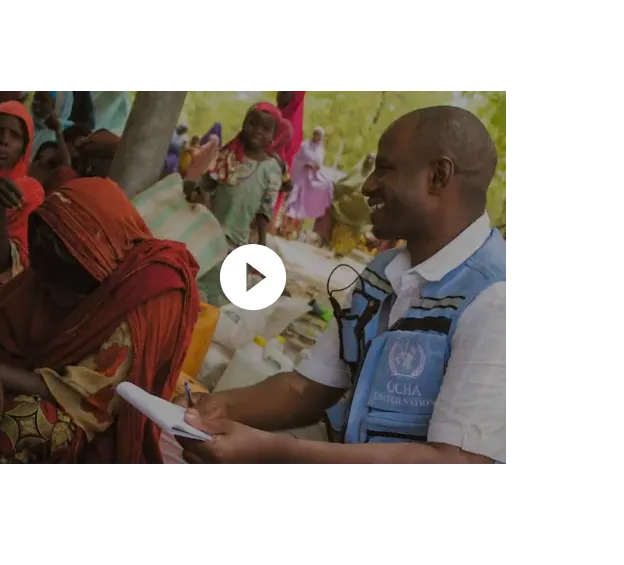Global: NEAT+ Report Repository
ORGANIZATION
Norwegian Refugee Council (NRC)
MODULES TESTED
Rural NEAT+
DESCRIPTION
This will hold the reports produced by the multi-year project based on the Nexus Environmental Assessment Tool (NEAT+), Strengthening Environmental Screening Capacity of Humanitarian Organizations, led by the Norwegian Refugee Council (NRC) and funded by the European Civil Protection and Humanitarian Aid Operations (ECHO).
Zambia: Mantapala Refugee Settlement
ORGANIZATION
UNHCR
MODULES TESTED
Rural NEAT+
DESCRIPTION
NEAT+ pilot test with the UN Refugee Agency (UNHCR) and the JEU in the Mantapala refugee settlement, Zambia, on the border with the Democratic Republic of Congo. The pilot test identified and synthesized multiple risks facing the settlement including those relating to specific food security, shelter and WASH activities.
Uganda: Bidibidi Refugee Settlement
ORGANIZATION
Norwegian Refugee Council
MODULES TESTED
Rural NEAT+
DESCRIPTION
This environmental scoping mission was conducted in the Bidibidi refugee settlement, located in the West Nile Area of Uganda, by the UN Environment Programme/OCHA Joint Environment Unit (JEU) and Norwegian Refugee Council (NRC). The purpose of the mission was to highlight key areas of environmental risk in the NRC West Nile programme while using, testing and promoting the NEAT+.
Colombia: Maicao Transit Center
ORGANIZATION
UNHCR
MODULES TESTED
Rural NEAT+
DESCRIPTION
The NEAT+ was applied in the UNHCR reception center, Centro de Atención Integral (CAI) in Maicao, northeastern Colombia. The purpose of the mission was to evaluate the effectiveness of the NEAT+ tool in a reception camp setting. Key findings include the need to increase and prioritize environmental education (waste management and lack of social cohesion), switching to green energy solutions, reducing disaster risk from flooding and soil erosion (through drainage systems as well as nature-based solutions), and enhancing the current community engagement and accountability mechanisms in place to promote social cohesion.
Myanmar: Hpa An Township
ORGANIZATION
Norwegian Refugee Council
MODULES TESTED
Rural NEAT+
DESCRIPTION
This environmental scoping mission highlighted key areas of concern in Hpa An Township, Kayin State, in two villages of internally displaced persons (IDP). Key findings (and related recommendations) cover programmatic, strategic and external advocacy relevant recommendations. These encompass the need to prioritise disaster risk reduction interventions and education, the large gap in waste management, climate change, improving the capacity for screening environmental risks, and suggestions for the Myanmar Humanitarian Fund
Yemen: Al-Hali Informal Settlement
ORGANIZATION
Action Contre la Faim (ACF)
MODULES TESTED
Rural NEAT+
DESCRIPTION
Since 2020, ACF has been piloting NEAT+ in different country offices and contexts in the Middle East and Africa. The tool has been mainly tested in ongoing projects to verify the suitability to interventions as well as to assess the user experience. In Yemen, an environmental evaluation with NEAT+ was conducted in an emergency life-saving water trucking activity for the 30,000 individuals living in informal settlements in Al-Hali, district of Hodeidah governorate.
Kenya: Dadaab Refugee Complex
ORGANIZATION
Danish Refugee Council, Norwegian Refugee Council
MODULES TESTED
Rural NEAT+
DESCRIPTION
The aim of this environmental assessment was to highlight the environmental and climatic conditions in the project area and ensure relevant findings are integrated in subsequent activities. The assessment included an analysis of the relevant environmental policies, a NEAT+ environmental sensitivity analysis and the food security module as well as parts of the CVCA tool.
Ethiopia: Akula Settlement, Gambella
ORGANIZATION
Danish Refugee Council
MODULES TESTED
Rural NEAT+
DESCRIPTION
This environmental assessment was conducted by DRC in the Akula settlement in the Gambella region of Ethiopia to identify key environmental issues ahead of project implementation. The assessment includes an analysis of environmental policies and frameworks, a wider scoping of the environmental conditions in the region as well as a NEAT+ sensitivity analysis.
